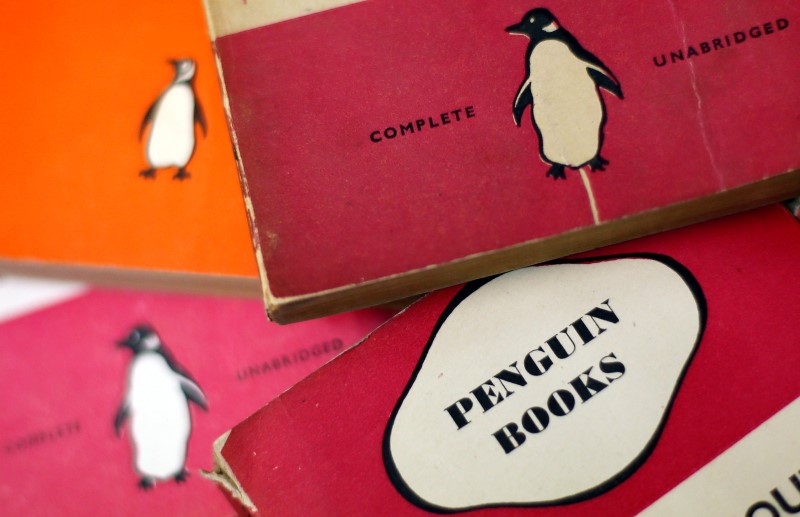By Harro Ten Wolde and Arno Schuetze
FRANKFURT (Reuters) - European media giant Bertelsmann
Privately owned Bertelsmann controls 53 percent of the publisher of bestsellers such as the Fifty Shades series and Lee Child's Jack Reacher thrillers.
Announced in 2012, the venture brought together two of the biggest names in book publishing, with the Penguin imprint and logo a familiar sight on bookshelves around the English-speaking world.
Pearson and Bertelsmann initially committed to holding their shares for at least three years and each partner has the right of first refusal thereafter should one want to sell.
They also agreed that from five years after completion of the deal either partner can require an initial public offering (IPO) of the publisher.
Pearson, the world's biggest educational publisher, is going through a period of transition. It has sold the Financial Times and its stake in The Economist in recent months to concentrate on education.
Asked by Reuters for a comment, Pearson reiterated remarks made by Chief Executive John Fallon earlier this month. At that time he said: "It's an issue we will consider at some point (selling Pearson's PRH stake) but it's more likely to be a 2017 than a 2016 issue."
SEEKING A PARTNER?
Analysts see a sale of its 47 percent stake in the book publisher, worth an estimated 2 billion euros ($2.1 billion) at least, as the next logical move.
"It is definitely something Bertelsmann has looked into," said one person familiar with the thinking of the management of the German company.
"The main issue is whether Pearson wants to sell its stake in one deal or whether it wants to sell in phases," the person added.
Bertelsmann declined to comment.
A complete exit in one go by Pearson could be a financial challenge for Bertelsmann when it is investing to build up its own education business, aiming for 1 billion euros in mid-term sales, up from less than 200 million euros this year.
Talks between the two Penguin Random House owners are expected to resume next year, two sources said.
Bringing in a private equity partner would be a logical option to help ease the burden, the sources said.
Such a construction is not new to Bertelsmann Chief Executive Thomas Rabe, who used a similar deal structure to transform music business BMG with the help of Kohlberg Kravis Roberts (N:KKR).
Bertelsmann dismantled BMG in the last decade, keeping only some music rights.
It brought KKR on board as a shareholder for the remaining BMG business in 2009 and with its financial help bought a string of music publishers and rights catalogues, including those of the Rolling Stones, Janet Jackson and Roy Orbison.
In 2013, Bertelsmann bought out KKR and took back full ownership of the company.
"Rabe really likes those kind of deals," said another person familiar with the process said.
The private equity firm would be a logical candidate to help shoulder a Penguin Random House deal, the person familiar with Bertelsmann management's thinking said but did not rule out other partners.
KKR declined to comment on the matter.
